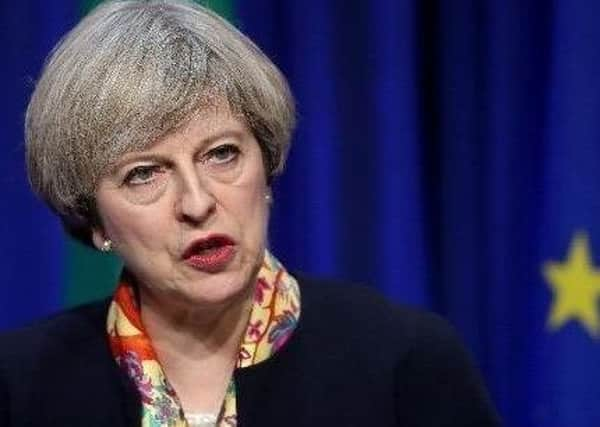May pledges to crackdown on nuisance calls


Doctors, trading standards officials and local councils will identify people most at risk, particularly those with dementia, under the £500,000 scheme, the Prime Minister said.
The trueCall devices will stop all recorded messages, silent calls and calls from numbers that have not been listed by the home-owner.
Advertisement
Hide AdAdvertisement
Hide AdMrs May said: “We want to create a fairer society by cracking down on unscrupulous practices which target the most vulnerable.
“This new, targeted scheme is the latest step in the Government’s fight against nuisance calls, protecting those who are most at risk, including those with dementia.
“We have seen people tricked out of thousands of pounds by scam callers and this Government is determined to clamp down on their activities once and for all.”
Rogue traders and scam callers have bombarded the elderly and vulnerable with nuisance phone calls in recent years.
Advertisement
Hide AdAdvertisement
Hide AdThe move follows the trial of a similar scheme run by the National Trading Standards scams team last year which helped 93% of participants feel safer in their homes, including one person who had previously paid £150,000 to a scam caller.
Hilda Hayo, chief executive of Dementia UK, said: “We welcome this project as some people living with dementia are vulnerable to nuisance callers who offer bogus services and financial schemes.
“These calls can not only have a negative financial impact but can also lead to psychological affects such as anxiety, depression and a loss of self-esteem.
“We frequently receive calls to our national helpline from family members who are concerned that their relative with dementia has fallen prey to rogue traders.”
Advertisement
Hide AdAdvertisement
Hide AdThe devices will screen calls and can either ask callers to enter a security code or direct them to call a friend or relative of the home owner.
Lord Toby Harris, chairman of National Trading Standards, said: “The impact of nuisance calls - both emotional and financial - cannot be under-estimated.
“We know that these call-blockers can make a real difference to people’s lives and give those in vulnerable situations, such as those with dementia, and their families a greater sense of protection and security.”
Meanwhile, Nrs May has warned internet giants she will keep up the pressure over their failures to deal with extremist material being posted online.
Advertisement
Hide AdAdvertisement
Hide AdCompanies like Google have made some progress in tackling terror and hate being spread in cyberspace but they must do more, the Prime Minister said.
Information on how to mount a terror attack was found to be easily accessible online in the wake of the Westminster atrocity last month.
Mrs May said: “The Government has already spent quite a lot of time talking with the companies about what they can do and what we think they should be doing. They have made some progress.
“Obviously we’ve had - there’s a significant number of pieces of material taken down from the internet through the counterterrorism internet referral unit, something like a quarter of a million pieces since 2010 now.
Advertisement
Hide AdAdvertisement
Hide Ad“We continue to talk to the companies. The Home Secretary met them last week.”
* Theresa May has defended George Osborne over his decision to become a newspaper editor on top of his parliamentary duties. He has racked up six outside jobs, include the demanding editorship of London’s Evening Standard.
But Mrs May said many MPs have demanding outside jobs in the health service, Army and police. She said: “MPs throughout time and continuing now have often had other roles and responsibilities and jobs as well as being an MP.”